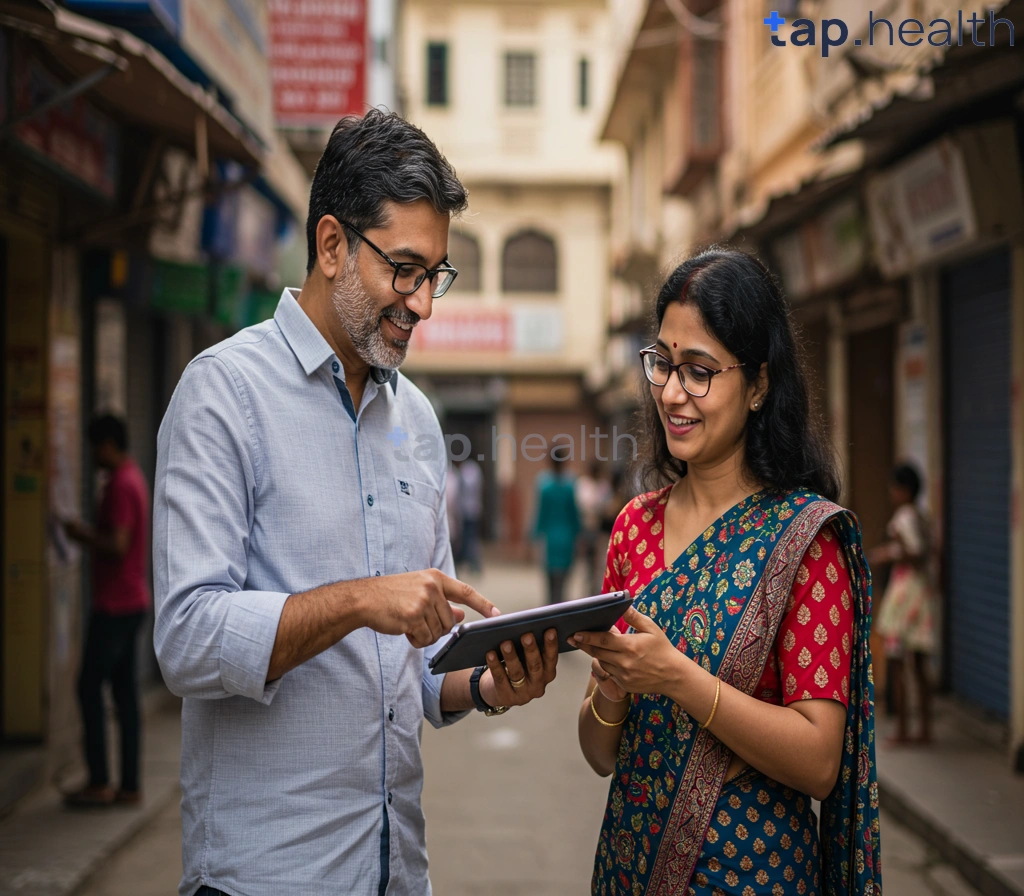Table of Contents
- How Social Determinants Exacerbate Diabetes
- Understanding Diabetes Health Disparities
- Tackling Diabetes: The Role of Social Factors
- A Guide to Diabetes Care in Underserved Communities
- Diabetes Prevention: Addressing Social Determinants of Health
- Frequently Asked Questions
- References
Living with diabetes is a daily challenge, but did you know that factors beyond your control significantly impact your health outcomes? We’re talking about Diabetes & Social Determinants: Understanding the Impact on Health. This blog post explores how social factors like poverty, access to healthcare, and even your neighborhood environment can dramatically influence your ability to manage diabetes effectively. We’ll delve into the often-overlooked connections between your social circumstances and your overall well-being, offering insights and actionable information to help you navigate these complexities. Let’s uncover how we can work towards better diabetes management by addressing these crucial determinants.
How Social Determinants Exacerbate Diabetes
The Interplay of Socioeconomic Factors and Diabetes Risk
Daily consumption of sugary beverages raises diabetes risk by 26%, a stark statistic highlighting the impact of individual choices. However, in Indian and tropical countries, this is further complicated by significant social determinants of health. Access to nutritious food, safe drinking water, and healthcare are often unevenly distributed, disproportionately affecting vulnerable populations. Poverty, lack of education, and limited healthcare infrastructure create a vicious cycle, making diabetes management and prevention significantly more challenging.
Regional Challenges in Diabetes Management
Limited access to affordable insulin and diabetes medication is a major concern across many Indian and tropical nations. Furthermore, cultural factors and traditional diets, while rich in culinary diversity, can sometimes contribute to high sugar and refined carbohydrate intake, increasing diabetes prevalence. Additionally, the prevalence of sedentary lifestyles in urban areas, coupled with limited access to green spaces for physical activity, adds another layer of complexity. These factors contribute to a higher burden of diabetes-related complications and mortality in these regions. The added stress of managing diabetes can also significantly impact mental well-being, as discussed in our article on The Impact of Diabetes on Mental Health.
Empowering Communities Through Actionable Steps
Addressing this requires a multi-pronged approach. Government initiatives focused on improving healthcare access, promoting healthy lifestyles through public awareness campaigns, and ensuring affordable access to essential medications are crucial. Community-based programs targeting diabetes prevention and management, tailored to the specific cultural contexts and socioeconomic realities of these regions, can significantly impact the trajectory of diabetes prevalence. Investing in community health workers and strengthening primary care systems is paramount to effectively address this growing health crisis. It’s also important to understand how stress hormones affect diabetes, as stress is a major factor influencing blood sugar control. Let’s work together to create a healthier future.
Understanding Diabetes Health Disparities
Diabetes disproportionately affects populations in Indian and tropical countries, exacerbating existing health inequalities. Research shows a stark contrast in prevalence rates, with urban areas exhibiting a significantly higher percentage (12.1%) compared to rural areas (8.3%) — a disparity highlighted in data from the International Diabetes Federation. This difference isn’t merely a matter of statistics; it reflects deep-rooted social determinants of health.
Socioeconomic Factors and Access to Care
Limited access to quality healthcare, including preventative screenings and diabetes management programs, is a major contributor to these disparities. Poverty, lack of education, and inadequate sanitation prevalent in many Indian and tropical regions create a perfect storm for uncontrolled diabetes. Furthermore, lifestyle factors, influenced by socioeconomic conditions, such as poor diet and limited physical activity, increase the risk. In many urban slums, readily available processed foods are often cheaper and more convenient than fresh produce, leading to unhealthy dietary habits. Understanding the link between these factors and the development of diabetes is crucial, as highlighted in Understanding the Link Between Diabetes and Obesity.
Cultural and Environmental Influences
Beyond socioeconomic factors, cultural practices and environmental conditions play a crucial role. Certain traditional diets prevalent in some areas might contribute to higher blood sugar levels. The hot and humid climate in many tropical regions can also impact diabetes management, making it more challenging for individuals to regulate their blood glucose levels. Effective diabetes education is key to mitigating these challenges, as explained in How Diabetes Education Enhances Health Outcomes – Tap Health.
Addressing the Disparities
Improving healthcare access in underserved communities is paramount. This includes increasing the availability of affordable medication, improving health literacy through public health campaigns tailored to specific cultural contexts, and promoting healthy lifestyles through community-based programs. Investing in infrastructure, such as improved sanitation and access to clean water, can also significantly impact overall health outcomes and diabetes management in these regions. By addressing these social determinants, we can work towards a more equitable future where everyone has the opportunity to live a healthy life, free from the debilitating effects of diabetes.
Tackling Diabetes: The Role of Social Factors
Diabetes disproportionately affects populations in India and other tropical countries, highlighting the crucial role of social determinants in managing this chronic condition. A significant portion of the global diabetic population, 61% are aged between 20-64 years, while 39% are aged 65+ years, according to the International Diabetes Federation. This statistic underscores the urgency to address diabetes across all age groups within these regions. The challenges faced by older adults managing diabetes are particularly significant, as highlighted in our article, Managing Diabetes as You Age: Challenges and Solutions.
Socioeconomic Barriers to Diabetes Management
Limited access to healthcare, including affordable insulin and other essential medications, significantly impacts diabetes control in many Indian and tropical nations. Poverty, food insecurity, and lack of health insurance often prevent timely diagnosis and consistent treatment. Furthermore, limited health literacy and cultural beliefs can hinder adherence to prescribed medication and lifestyle changes. For example, the prevalence of unhealthy diets high in processed foods and sugars, coupled with sedentary lifestyles, contributes to the high incidence of type 2 diabetes in these areas. Maintaining a strong immune system is also crucial for managing diabetes effectively, as discussed in Boosting Immunity While Managing Diabetes.
Addressing the Social Determinants of Diabetes
Effective diabetes management requires a multi-pronged approach that tackles these social determinants. Government initiatives focusing on affordable healthcare access and health education campaigns are crucial. Community-based programs promoting healthy lifestyles and providing support networks can empower individuals and families to manage their condition effectively. Additionally, strengthening healthcare infrastructure, particularly in rural areas, is essential to improve access to timely diagnosis and treatment for all age groups.
Taking Action
Improving diabetes outcomes in India and tropical countries demands a collective effort. By addressing the underlying social factors contributing to the disease, we can create healthier communities and improve the lives of millions. Let’s work together to advocate for policy changes, support community initiatives, and raise awareness about the crucial link between social determinants and diabetes management.
A Guide to Diabetes Care in Underserved Communities
Addressing the Challenges of Diabetes in India and Tropical Countries
The global burden of diabetes is staggering, with over 75% of people living with this chronic condition residing in low- and middle-income countries, as highlighted by the IDF Diabetes Atlas. This disproportionately impacts Indian and tropical nations, where limited access to healthcare, socioeconomic disparities, and unique environmental factors significantly worsen diabetes management and outcomes. Understanding and addressing these social determinants of health is crucial for effective diabetes care in these regions.
Overcoming Barriers to Effective Diabetes Management
Many underserved communities in India and tropical countries face significant barriers to effective diabetes management. These include limited access to affordable insulin and oral medications, insufficient healthcare infrastructure, a lack of trained healthcare professionals, and cultural beliefs that can hinder early diagnosis and treatment. Furthermore, poverty, food insecurity, and lack of education often contribute to poor lifestyle choices that exacerbate diabetes. For example, limited access to nutritious food may force individuals to rely on inexpensive, processed foods high in sugar and unhealthy fats. For practical strategies to manage your diabetes effectively, check out our guide on 10 Proven Tips for Effective Diabetes Management.
Practical Steps Towards Improved Diabetes Care
Improving diabetes care in these regions requires a multi-pronged approach. Investing in community-based diabetes education programs is crucial, empowering individuals with the knowledge and skills to manage their condition effectively. Improving healthcare infrastructure and training healthcare workers are equally important, ensuring accessible and quality care. Finally, addressing social determinants of health, such as poverty and food insecurity, is essential for long-term success. By working collaboratively with local communities and healthcare providers, we can create sustainable solutions to improve the lives of people living with diabetes in India and tropical countries. For those planning to travel while managing diabetes, we also recommend reading our blog on Traveling with Diabetes: Essential Tips for a Safe & Healthy Journey.
Diabetes Prevention: Addressing Social Determinants of Health
Research shows that up to 80% of Type 2 diabetes cases can be prevented through lifestyle changes. This is especially urgent in Indian and tropical countries, where diabetes is rising at alarming rates. But promoting healthier lifestyles alone is not enough. To make real progress, we must also address the social determinants of health—the social, cultural, and economic conditions that shape people’s ability to live healthier lives.
Socioeconomic Factors and Diabetes Risk
For many families, poverty, food insecurity, and limited access to healthcare create major barriers to diabetes prevention.
-
Poor diet options – When affordable, nutritious food isn’t available, people often rely on cheap, processed foods high in sugar and unhealthy fats.
-
Limited healthcare access – Without affordable and accessible healthcare, many people face late diagnosis and poor management of diabetes, leading to severe complications.
These challenges reinforce one another, trapping vulnerable communities in a cycle that makes diabetes prevention far more difficult.
Cultural Influences and Lifestyle Choices
Culture and tradition strongly influence food and lifestyle habits. In some communities, traditional diets or sedentary routines contribute to higher diabetes risk. Breaking this cycle requires:
-
Culturally sensitive education about balanced diets and physical activity
-
Community-based awareness campaigns tailored to local beliefs and habits
-
Accessible health screening programs for early detection
It’s also important to recognize the emotional connection to food. For insights into this, see our article on Addressing Emotional Eating in Diabetes: Strategies.
Actionable Steps for Prevention
Diabetes prevention requires a multi-layered approach that goes beyond individual choices:
-
Improve access to affordable, nutritious food
-
Strengthen healthcare systems in underserved areas
-
Develop prevention programs rooted in local culture and community needs
By addressing these deeper social determinants, we can greatly reduce the burden of diabetes across India and other tropical nations. Prevention is not only cost-effective—it’s an investment in the long-term health and well-being of our populations.
Remember, a Personalized Diabetes Control Plan can also make a big difference in improving outcomes and quality of life.
Frequently Asked Questions
Q1. What are the main reasons for the high rates of diabetes in India and other tropical countries?
High rates of diabetes in India and tropical countries are due to a combination of factors, including limited access to healthcare and affordable medication, lack of access to nutritious food and sanitation, poverty, low health literacy, and cultural factors that promote unhealthy diets and sedentary lifestyles.
Q2. Why are urban areas in India more affected by diabetes than rural areas?
The higher rates of diabetes in urban areas compared to rural areas in India are likely due to increased access to processed foods, less physical activity, and higher stress levels associated with urban living.
Q3. What kind of solutions are needed to tackle the diabetes crisis in India and similar regions?
Addressing the diabetes crisis requires a multi-pronged approach that includes improved healthcare access and infrastructure, culturally sensitive community-based programs for prevention and management, public awareness campaigns promoting healthy lifestyles, and tackling socioeconomic inequalities.
Q4. How can governments and organizations help improve diabetes management and prevention?
Governments and organizations can play a crucial role by investing in community health workers, strengthening primary care, and implementing effective public health initiatives focused on diabetes prevention and management.
Q5. What are some common misconceptions about diabetes that need to be addressed?
Common misconceptions about diabetes vary, but it’s essential to address the myths surrounding diabetes management, dispel the belief that diabetes is solely a lifestyle disease, and emphasize the role of socioeconomic factors in its prevalence.
References
- A Practical Guide to Integrated Type 2 Diabetes Care: https://www.hse.ie/eng/services/list/2/primarycare/east-coast-diabetes-service/management-of-type-2-diabetes/diabetes-and-pregnancy/icgp-guide-to-integrated-type-2.pdf
- Thesis on Diabetes Mellitus: https://dspace.cuni.cz/bitstream/handle/20.500.11956/52806/DPTX_2012_1_11160_0_271561_0_118026.pdf?sequence=1&isAllowed=y



